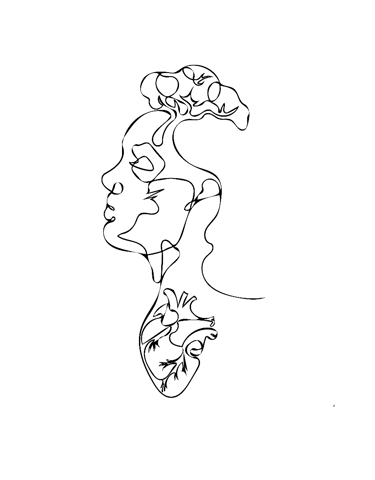The Appeal of the Red-Pill
In retrospect, that period leaves me with a strange, lingering discomfort—a quiet tension I can’t quite shake.
I had always seen myself as a good guy. I treated women well—maybe too well sometimes. Misogynistic ideas weren’t just something I disagreed with; they were ideas I openly ridiculed. And yet, there I had been, consuming takes I would have fiercely rejected just weeks earlier. Video after video, each one pulling me a little further down a path I hadn't even realized I had stepped onto.
At first, I couldn’t make sense of it. How had I gotten there? How had my heartbreak—my pain—lowered the defenses I thought were unshakable? The realization unsettled me even in those early days, especially once I began stepping away from the "manosphere" and actually focusing on real self-improvement. But at the time, I was too exhausted to face those questions fully. Instead, I pushed them aside, letting them float in the background like loose ends I wasn’t ready to tie up.
For a while, healing took all my energy. The breakup had cracked me open, forcing me to reevaluate more than just the relationship—it made me question myself. My expectations. My beliefs. My role in everything that had happened. Slowly, painfully, I started to piece myself back together. I began to feel like me again.
But that lingering question didn’t disappear. It returned, louder and sharper this time. Not just as a personal concern, but as something broader. Everywhere I looked, the world seemed to mirror the same patterns I had witnessed in myself. Political debates grew more extreme. Conversations lost their nuance. Common ground became rare, and people clung tightly to their ideological tribes.
Watching all of it unfold, I couldn’t help but think back to how close I had come to losing myself in a worldview I once found absurd. It wasn’t just “other people” who were vulnerable to extreme beliefs. I was, too.
That’s when the deeper questions began to take shape. When are people most vulnerable to manipulation? What emotions open the door to radical thinking? How much of it comes from pain, from resentment, from the refusal to take personal responsibility?
These weren’t academic questions for me—they were urgent, personal. They mattered because I had lived them.
Realizing how easily I had almost slipped into an ideology built on resentment and blame was unsettling. But it also gave me clarity. It showed me the necessity of understanding—not just for my own sake, but to make sense of why so many others fall into the same traps.


